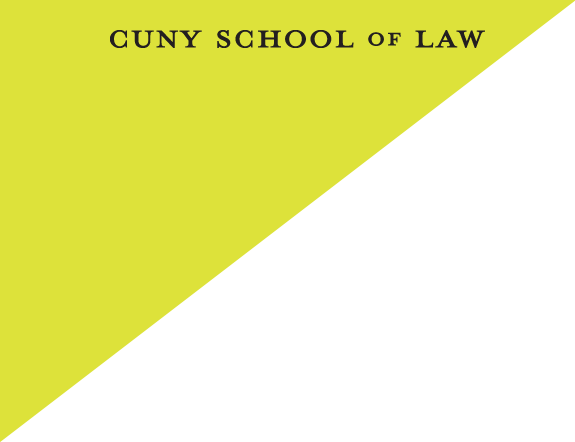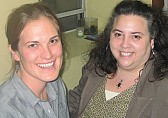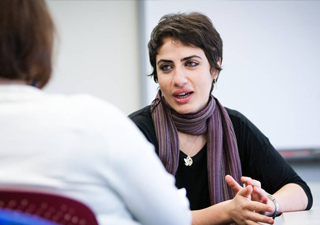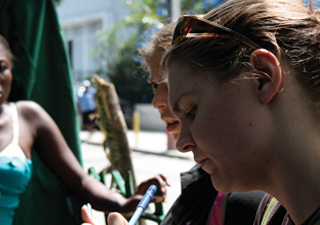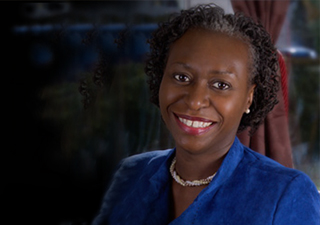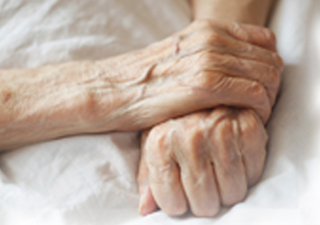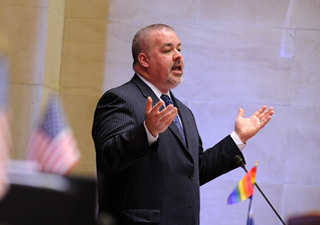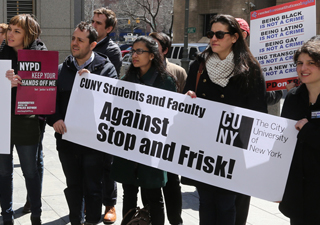David BarrAlumnus class of '86
When you hear David Barr (’86) talk about his life in New York City in the 1980s, it’s like a storyline from a gripping movie. But it’s a story that Barr lived.
The 2013 Oscar-nominated documentary How to Survive a Plague features Barr and sheds light on the early days of the AIDS crisis, as well as the activism that helped push the FDA to fast-track approval of HIV drugs that would help curb an epidemic.
Barr spoke from his office at the Fremont Center in upstate New York. His work involves advocacy, development, and evaluation of service delivery for HIV treatment, as well as prevention projects, all taking place in a rural setting far removed from New York City.
“There’s a lot of dairy farms, woods, and deer,” said the born-and-bred New Yorker, who has lived full-time in the foothills of the Catskill Mountains for five years. Barr recounted his story while watching the mist rise up from the melting snow and into the trees.
In the 1980s, Barr was a young man working in theater and looking to go back to school. Getting a J.D. seemed to be a practical way of addressing political issues of interest to him. At the time, there was a new law school with a radical approach: to teach public interest law with a clinical focus. CUNY Law was looking for students with previous life experience. To Barr, it seemed like a perfect fit.
“I was in the first graduating class. It was very exciting because everybody was making up the program as we went along,” said Barr.
While Barr learned lawyering skills, he was most interested in constitutional law and big-picture discussions on policy. “CUNY gave me an opportunity to work on those issues,” said Barr.
As a 2L, Barr interned at the ACLU Lesbian and Gay Rights Project and later the Lambda Legal Defense and Education Fund.
At the time, Lambda was trying to delay FDA licensing of the first HIV test because it lacked confidentiality and anti-discrimination provisions to protect people from misuse of test results.
Barr was told to get affidavits from scientists to support Lambda’s views.
When Lambda lost its bid and the test went out, Barr fielded and documented a flood of calls from attorneys whose clients had been HIV-tested by employers without their knowledge and then fired from work after testing positive. “That was the beginning of the AIDS legal crisis,” said Barr.
In his long career, Barr has often made use of advocacy. His advocacy helped cut in half the time it took the FDA to develop and approve a class of powerful HIV drugs.
“When [those drugs were] used in combination with other previously approved drugs, people got off their deathbeds and are alive today because of them,” Barr said.
Barr has also worked hard to get effective drug combinations to developing countries, while bringing down costs. It seems to be working. Ten years ago, 200,000 people in developing countries were getting the HIV drugs; now that number is 8 million.
Barr credits CUNY Law for helping him succeed, from teaching him how to work in a group to providing a common set of values for law in the public interest.
“I draw on my legal education every day,” he said. “CUNY Law provided me with a useful framework on how to approach problems and grounded me with values.”
